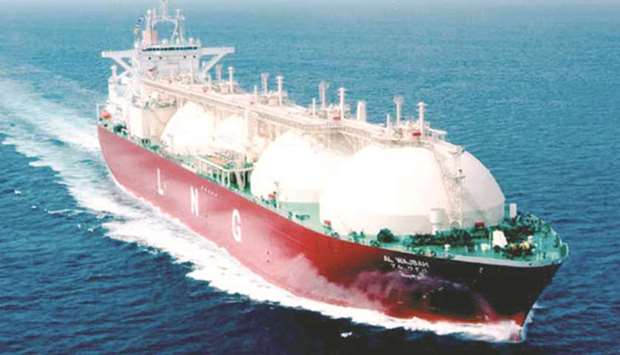Qatar’s international reserves are expected to reach $16.8bn by 2020, FocusEconomics said and noted that the country’s economy is growing faster now compared to 2017 with a stable outlook.
The country’s international reserves totalled $13.8bn in 2017, according to FocusEconomics. This year, it may touch $16.6bn, $19.3bn in 2021 and $21.7bn in 2022.
In 2018, the country’s international reserves may cover 6.1 months of imports, 5.6 months in 2020, six months in 2021 and 6.4 months in 2022.
The country’s merchandise trade balance is expected to exceed $47.5bn in 2022. This year, Qatar’s merchandise trade balance may reach $42.7bn, $43.8bn (2019), $44.9bn (2020) and $46.2bn (2021).
Qatar’s GDP is expected to exceed $176bn this year, $186bn (2019), $196bn (2020), $206bn (2021) and $217bn (2022).
GDP per capita may account for $63,407 this year, $66,107 (2019), $69,464 (2020), $72,998 (2021) and $76,718 (2022).
Current account balance is projected to be 4.8% of the country’s GDP this year, 4.4% in 2019, 4.5% (2020), 4.5% (2021) and 4.6% (2022).
Qatar’s public debt (as a share of the GDP) may be 54.5% this year, 53.5% (2019), 52.7% (2020), 51.9% (2021) and 51% (2022).
FocusEconomics said so far this year, Qatar economy has shown “signs of improvement” compared to last year, when it grew at the slowest pace since 1994 “as Qatar exceeded its compliance obligations with the Opec oil-cap agreement, and the country was hit by the Saudi-led economic blockade.”
The report said in the January-to-March period, the merchandise trade surplus grew nearly 50% compared to the same period last year.
“Despite the blockade, Qatar still supplies almost a third of the world’s LNG. In the first months of this year, that strong market share once again supported the country’s external sector position,” FocusEconomics said.
Meanwhile, taking advantage of favourable conditions for emerging market debt, Qatar raised money from the international bond markets for the first time since 2016 in April, netting $12bn.
It said “higher oil prices, economic reforms and the government’s infrastructure investment push in preparation for the FIFA World Cup 2022 should support the economy this year.”
Nevertheless, the report said the blockade will “continue to weigh on” the outlook.
FocusEconomics panelists forecast growth of 2.9% in 2018, unchanged from last month’s projection, and 2.8% in 2019.
The country’s inflation slowed to 0.4% in March (February: 0.8%). FocusEconomics sees inflation averaging 2.1% in 2018 and 2.8% in 2019.
In 2018, the country’s international reserves may cover 6.1 months of imports, 5.6 months in 2020, six months in 2021 and 6.4 months in 2022.
The country’s merchandise trade balance is expected to exceed $47.5bn in 2022. This year, Qatar’s merchandise trade balance may reach $42.7bn, $43.8bn (2019), $44.9bn (2020) and $46.2bn (2021).
Qatar’s GDP is expected to exceed $176bn this year, $186bn (2019), $196bn (2020), $206bn (2021) and $217bn (2022).
GDP per capita may account for $63,407 this year, $66,107 (2019), $69,464 (2020), $72,998 (2021) and $76,718 (2022).
Current account balance is projected to be 4.8% of the country’s GDP this year, 4.4% in 2019, 4.5% (2020), 4.5% (2021) and 4.6% (2022).
Qatar’s public debt (as a share of the GDP) may be 54.5% this year, 53.5% (2019), 52.7% (2020), 51.9% (2021) and 51% (2022).
FocusEconomics said so far this year, Qatar economy has shown “signs of improvement” compared to last year, when it grew at the slowest pace since 1994 “as Qatar exceeded its compliance obligations with the Opec oil-cap agreement, and the country was hit by the Saudi-led economic blockade.”
The report said in the January-to-March period, the merchandise trade surplus grew nearly 50% compared to the same period last year.
“Despite the blockade, Qatar still supplies almost a third of the world’s LNG. In the first months of this year, that strong market share once again supported the country’s external sector position,” FocusEconomics said.
Meanwhile, taking advantage of favourable conditions for emerging market debt, Qatar raised money from the international bond markets for the first time since 2016 in April, netting $12bn.
It said “higher oil prices, economic reforms and the government’s infrastructure investment push in preparation for the FIFA World Cup 2022 should support the economy this year.”
Nevertheless, the report said the blockade will “continue to weigh on” the outlook.
FocusEconomics panelists forecast growth of 2.9% in 2018, unchanged from last month’s projection, and 2.8% in 2019.
The country’s inflation slowed to 0.4% in March (February: 0.8%). FocusEconomics sees inflation averaging 2.1% in 2018 and 2.8% in 2019.


